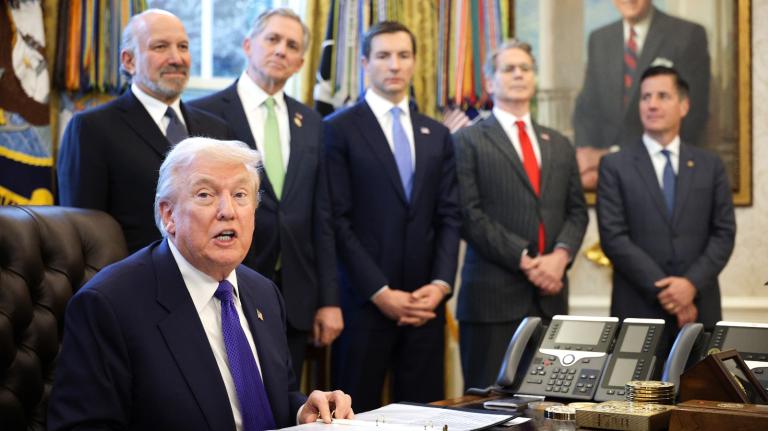A new Rasmussen poll shows that just 24 percent of people know what “cap-and-trade” is. Even that is an optimistic gloss: in fact, only 24 percent of people know that cap-and-trade is meant to address environmental issues. Some 29 percent think it’s a new Wall Street regulation; 30 percent have no idea.
Professional enviros seem quite upset about this. But … why? Why should the public know what “cap-and-trade” means? The belief that the public should be conversant with this technical policy term reveals a great deal about the gulf between how elites view this set of issues and how the public views them.
The public is aware that fossil fuels have problems. They make us less secure. They’re messing with the atmosphere. They’re dirty. We need more clean energy. But only if it’s safe and reliable. Also, the economy sucks, so we don’t want to get slammed with higher prices. So yeah, let’s invest in a cleaner future and become global leaders in cool new industries.
That’s it. Offer the public a “Good Jobs and Safe, Reliable, Clean Energy with Less Pollution at a Reasonable Price” bill and they’re fine. That’s all they know or care to know about it — no talk of carbon or permits or offsets or auctions necessary. If you took a poll on what kind of alternator mechanics should use, the public probably wouldn’t have an opinion on that either. They just want the damn car fixed.
Problem is, green elites fell in love with cap-and-trade a while back because it allowed them to dodge the dread “command and control” tag. It’s “market-based,” and everybody knows — or thought back then, anyway — that marketz rool. Finally, they could offer a policy of which Very Serious Economists approve. That’s fine. It’s a great argument to take to legislators and thought leaders. But professional greens fell so far in love with it that they let it become the public face of their climate/energy efforts, and despite many efforts to make the inelegant phrase “cap-and-trade” sound like both common sense and a rallying cry, it sucks for that job. S. U. C. K. S.
Now they’re reaping the effects. Despite heroic efforts by its authors, Waxman-Markey is being discussed in public as a “cap-and-trade bill,” which means nothing to the public. Stepping in to help the public understand are Republicans: ZOMG IT’S A TAX!!1! The 75 percent of the bill that has nothing to do with capping or trading is going almost completely ignored.
Rasmussen notes, “There is always political danger when major legislation is enacted without engaging the public in the debate.” And that’s true. The debate we need to be having is, do we want to make an energy transition? Do we want to get past fossil fuels so we can remove a threat to our security, a drag on our economy, and a pox on our shared atmosphere? Yes or no? And if so, are we willing to be ambitious and really go for it?
That’s the debate the public needs to be involved in. When the public tunes in, however, it hears about carbon caps and permit trades and emission reduction targets and zzzzz … it tunes right out.
I don’t care if the public knows what cap-and-trade is. I just want to stop talking about it. Our collective ship is sinking and we’re involved in a heated debate about the kind of wrench to use to tighten the bolts on the lifeboat. How about first we all agree that we need to get off the damn ship.




